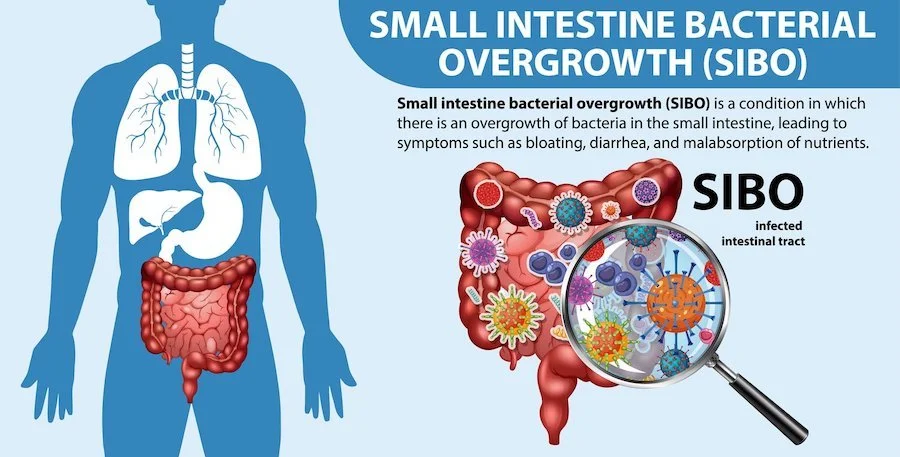SIBO: The condition explained
The intestines are home to millions of bacteria referred to as the gut microbiota. There are both good and bad bacteria that live in our small intestine but when the environment is altered the microbes can change and become unbalanced which can lead to SIBO.
Key symptoms of SIBO
The symptoms of SIBO are many and varied but the main reported ones are diarrhoea, constipation, excessive flatulence and burping, bloating, abdominal pain and some nutritional deficiencies. In most cases it has been shown that constipation causes more methane gasses and diarrhoea causes more hydrogen gasses but this is not always the case.
It is thought that the upset of gastric secretions such as low stomach acid and bile, slow motility, fewer good bacteria causing an overgrowth of bad bacteria (dysbiosis), diverticulosis, fistulas, pancreatic insufficiency and diet and lifestyle are the main causes though there are many more possibilities.
Long term SIBO may result in nutritional deficiencies, weight loss, dehydration, mood disorders and fatigue.
Assessing and treating SIBO
SIBO is a complicated condition with numerous causes so testing is a must to find the cause. Blood tests, breath tests and stool tests are usually performed. In severe cases a tissue sample may be needed via an endoscopy (although even this test isn’t always conclusive), structural testing to determine possible blockages in the intestines and blood tests to find inflammation and autoimmunity.
Recurrence of SIBO is common if diet and lifestyle are not changed. Treatments are varied and may include but are not limited to taking prokinetics, changing diet, managing other health conditions, treating low stomach acid and taking supplements.
For more information please contact me or to book a consult via the booking page.
References & Further Reading:

